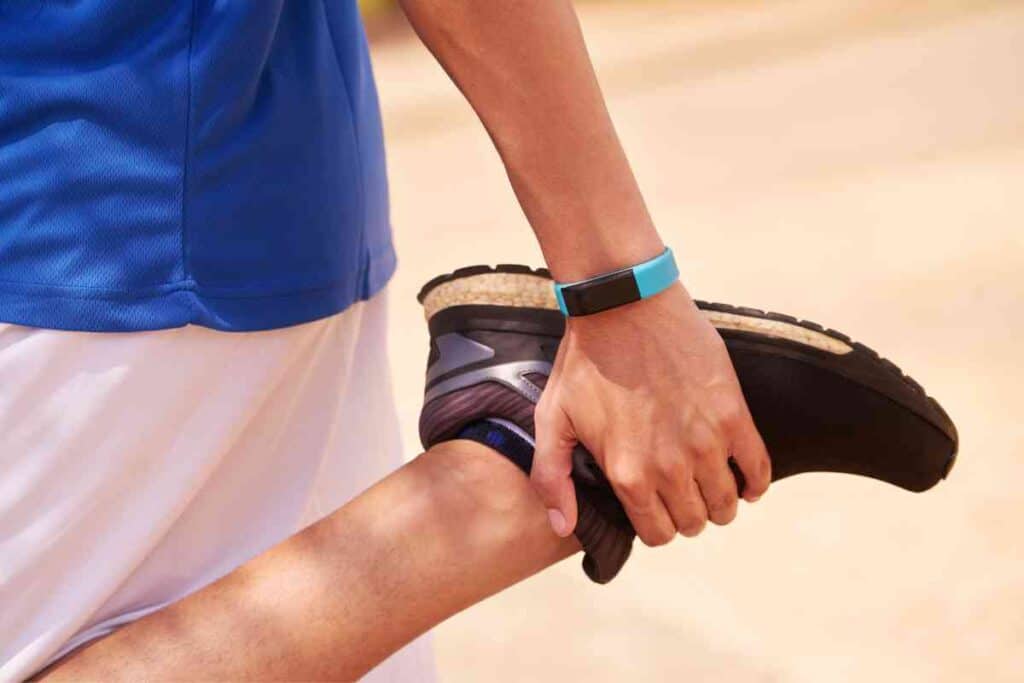4 Reasons Why You’re Losing Steps On Your Fitbit
For anyone relying on their Fitbit for tracking their fitness, it can be infuriating when it loses steps. Here is, ‘why do I lose steps on my Fitbit?’ answered.

Why Do I Lose Steps On My Fitbit?
There are several factors that can cause your Fitbit to lose steps, including power issues, defective hardware, phone compatibility issues, and software glitches. By understanding common causes of inaccurate step readings on a Fitbit, you can take steps to ensure your device is working correctly.
I am a fitness freak with a pinch of perfection that sometimes ladles out of me. My Fitbit not recording some of my steps was a rather irritating issue that I just had to solve. Here is what I found after consulting a few experts.
Reasons You’re Losing Steps On Your Fitbit
One of the key benefits of using a Fitbit is that it allows for precise and accurate tracking of your fitness goals.
However, you may sometimes experience problems with your Fitbit not accurately recording your steps or other data. Several factors, from power issues to phone compatibility issues, can cause this.
If you see errors in the step count recorded on your Fitbit, there are several potential causes:
Power Issues

It’s essential to ensure that your device has enough power before you start exercising.
A low battery level can cause step-counting errors and interfere with synchronizing your data with the app or web dashboard.
Additionally, if the battery doesn’t have enough power to keep up with your activity, it will also cause errors in the step count. You may end up needing to replace your Fitbit battery.
Phone Compatibility Issues
Bluetooth connection is a significant factor when using your Fitbit.
If you are having problems with your device registering steps, it could be caused by an incompatibility between your phone and Fitbit. You should check to ensure that both devices have installed the latest firmware updates.
Defective Hardware
In some cases, hardware may become damaged or malfunction, leading to inaccurate readings from the device.
Contact customer service for assistance or return instructions if your device isn’t performing as expected.
Software Glitches
Sometimes, Fitbit software updates can cause glitches that interfere with step-counting accuracy. If you’re experiencing trouble with your step count, check to ensure that you have the latest version of the Fitbit app and firmware installed on your phone and your device.
By understanding common causes of inaccurate step readings on a Fitbit, you can take steps to ensure that your device is working correctly.
Make sure your batteries are fully charged before exercising, keep the latest firmware updates on all devices, and contact customer service should any hardware or software issues arise.
With these simple tips, you can maximize the accuracy of your data and get back to tracking your fitness goals!

How Do I Get My Steps Back On My Fitbit?
If you have recently lost the step-counting ability on your Fitbit device, there are several ways to get it back. The first thing you should try is resetting your device.
To do this, press and hold the button for 8-10 seconds until the screen turns off and then back on again.
This will generally restore any tracking data that may have been lost due to a technical issue or software update.
Connecting your device to the Fitbit app can also check if it needs an update. Once connected, go to Dashboard > Settings > Device Update, follow the instructions, and check for any available updates that may need to be installed.
If no updates are available, try uninstalling and reinstalling the Fitbit app.
If neither of those methods has restored your step-counting ability, you will need to contact Fitbit Support.
They can help walk you through a few more steps to identify and solve the issue.
The best way to reach out is online via their live chat or by submitting an email ticket here: https://help.fitbit.com/contact-us/. It’s also possible to call them if you prefer talking on the phone!
Once your device has been reset or updated, ensure it is linked back up with the Fitbit app and that any lost data has been retrieved from the server.
Depending on how much data was lost, this may take some time, so be patient and wait for the steps to sync back up.

If all else fails, you may need to return your device for a replacement or repair.
You could contact them directly for assistance if you purchased your Fitbit from an authorized retailer within the warranty period.
Otherwise, reach out to Fitbit Support, who should be able to guide you through the process of getting your device fixed or replaced.
Gathering your steps is essential when tracking fitness goals and improving overall health, so don’t hesitate to take the necessary steps (pun intended!) to ensure that happens.
With these tips in mind, getting those steps back on your Fitbit should be simple and stress-free, especially for adventurers such as yourself!
Do Fitbits Count Steps Accurately?
Whether Fitbits count steps accurately or not has been heavily discussed among fitness enthusiasts, health professionals, and tech-savvy individuals.
To understand the accuracy of Fitbit in counting steps, it’s essential to consider a few different factors, such as their mechanism of action, how they compare to other tracking devices and even personal experience with using a Fitbit.
First, let’s take a look at how technology works. The main feature that allows Fitbits to track steps is an accelerometer – a sensor that measures acceleration in all three dimensions; up/down, left/right, and forward/backwards.
The accelerometer must be worn a sure way to pick up movement correctly. If the device is too loose, it won’t measure steps accurately, as the sensor needs to detect movement closely and accurately.
So far, studies have shown that Fitbits are pretty accurate in counting steps.
Research by the University of Pennsylvania found that Fitbit devices were within an average of 4% accuracy compared to other pedometer-style trackers.
However, some factors, such as body type or habit, can have an impact on step count accuracy; someone with shorter strides may record fewer steps than someone with longer strides, and if you tend to take smaller rather than larger steps, then your step count may also be lower than expected.
In comparison to other step-counting methods, Fitbits tend to be more accurate. For example, smartphone apps often rely on sensing the vibration of each step which can lead to inaccurate readings as different surfaces and movement speeds can affect this mechanism.
On the other hand, Fitbits use a more reliable accelerometer that is better at detecting actual movement irrespective of surface or speed.
It is also essential to consider individual experience when assessing the accuracy of Fitbits in counting steps.
This is because even if the technology itself has been tested and found to be accurate, there may still be user-specific factors that impact how well a person’s own device works for them – such as ensuring that it is worn correctly during activity and double-checking that all settings are correctly calibrated.
Users need to ensure that their own Fitbit device is set up correctly in order to make sure they get the most out of their device and track their activity accurately.
Key Takeaways
- Power issues can cause your Fitbit to lose your steps.
- Phone compatibility issues can cause your Fitbit to lose steps.
- Defective hardware can also cause your Fitbit to lose your steps.
- Software Glitches can also cause your Fitbit to lose steps.
- To get your steps back, you should try resetting your device.
- Connecting your device to the Fitbit app checks if it needs an update.
- Studies show that Fitbits are pretty accurate in counting steps.
